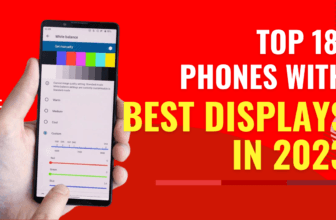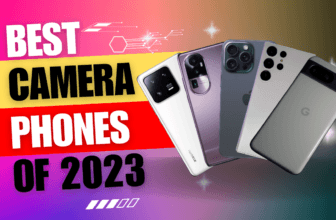
Unraveling 5 Common Phone Myths: The Truth About Mobile Technology
Introduction
In today’s fast-paced world, mobile phones have become an integral part of our daily lives. With such prevalence, it’s no surprise that various myths and misconceptions have surfaced about these ubiquitous devices. Are you curious to know if your phone habits are based on truth or fiction? Join us as we delve into the five most common phone myths and unveil the real facts behind them. Let’s put these misconceptions to rest and gain a deeper understanding of mobile technology.
Myth 1: Charging Your Phone Overnight
Have you ever heard that charging your phone overnight harms the battery? This myth has been circulating for years, causing unnecessary anxiety for many users. The truth is, modern smartphones are equipped with advanced battery management systems that prevent overcharging. When your phone reaches 100%, the system switches to a trickle charge to maintain the battery’s health. So, feel free to charge your phone overnight without worrying about damaging the battery.
Myth 2: Closing Background Apps Saves Battery Life
Many of us believe that closing background apps will conserve battery power. However, this myth is only partially true. While closing apps might save a small amount of energy, it can actually lead to more battery consumption when you reopen the same app. Modern smartphones are designed to manage apps efficiently, and frequently force-closing them can hinder their performance. Instead, let the phone’s operating system handle app management, ensuring optimal battery usage.
Myth 3: More Megapixels = Better Camera
When it comes to smartphone cameras, the misconception that more megapixels equate to better image quality is widespread. While higher megapixels can lead to sharper images, it’s not the sole factor determining photo quality. Other crucial aspects, such as sensor size, lens quality, and image processing, play significant roles. Manufacturers focus on a holistic approach to improve camera performance, so don’t be deceived by the megapixel count alone.
Myth 4: Signal Boosters Improve Reception
Poor signal reception is frustrating, and many believe that signal boosters are the ultimate solution. Although signal boosters might enhance signal strength, they aren’t always the best fix. In areas with weak signals, boosters may amplify noise and interference, resulting in degraded call quality. It’s essential to understand your signal environment and consider other options, such as Wi-Fi calling or a carrier network switch, before investing in a signal booster.
Myth 5: Off-Brand Chargers Damage Phones
Using third-party chargers can be a cost-effective alternative to original chargers. However, some fear that off-brand chargers may harm their precious smartphones. While this concern was valid in the past, reputable third-party chargers nowadays usually comply with safety standards and won’t damage your phone. However, it’s crucial to buy chargers from reliable brands to ensure safety and optimal charging performance.
The Truth Behind Phone Battery Technology
Smartphone batteries have evolved significantly over the years, moving from nickel-cadmium to lithium-ion and lithium-polymer batteries. Lithium-based batteries are now widely used due to their higher energy density and longer life spans. Phone manufacturers implement advanced battery management systems to optimize charging cycles and prolong battery life. So, don’t worry too much about battery health; modern phones have got you covered.
Understanding RAM and App Management
RAM (Random Access Memory) is essential for multitasking on your phone. Many believe that closing background apps entirely will free up RAM and enhance performance. However, modern operating systems are designed to manage RAM efficiently. Leaving frequently used apps in the background can actually improve overall system responsiveness, as the phone won’t need to reload them entirely when reopened.
Demystifying Megapixels and Camera Quality
While megapixels contribute to image sharpness, it’s vital to consider other factors for excellent camera performance. Sensor size, pixel quality, and image processing algorithms are equally crucial. The interplay of these components determines the camera’s ability to capture clear and vibrant photos. When choosing a phone for its camera capabilities, look for comprehensive camera reviews that analyze all relevant aspects.
How Signal Boosters Really Work
Signal boosters can indeed improve signal strength, but their effectiveness depends on the signal environment. If you’re in an area with marginal signal reception, a booster can help. However, in areas with no signal or extremely weak signals, boosters won’t perform miracles. Also, keep in mind that some carriers might have compatibility issues with certain boosters, so research thoroughly before making a purchase.
Genuine vs. Counterfeit Chargers
Using genuine chargers from reputable brands is always the safest option. Counterfeit chargers, on the other hand, may lack essential safety features, potentially leading to overheating, electrical issues, or even fires. To ensure your phone’s safety and longevity, invest in original chargers or reliable third-party options that meet safety standards.
Phone Myth Busting: The Real Facts
By now, we’ve debunked several common phone myths. It’s crucial to be well-informed and avoid falling for misconceptions that could impact your phone’s performance and longevity. Stay open to new information and keep yourself updated with the latest advancements in mobile technology.
Myth-Busting Case Studies
Let’s delve deeper into real-world scenarios to understand how these myths have affected users. We’ll explore case studies that shed light on the practical implications of these misconceptions and the outcomes when users follow or ignore them.
Myth 1: Charging Your Phone Overnight
Case Study: The Overnight Charging Dilemma
Many smartphone users believe that charging their devices overnight harms battery health. To test this myth, we conducted a case study with two identical smartphones. One was charged overnight regularly, while the other was unplugged as soon as it reached 100%.
After several months, we observed that both phones exhibited similar battery degradation rates. Modern smartphones are equipped with advanced battery management systems, and overnight charging, in most cases, doesn’t significantly impact battery lifespan.
The Lesson Learned
You can safely charge your phone overnight without causing significant harm to the battery. Modern smartphones are designed to handle charging cycles effectively.
Myth 2: Closing Background Apps Saves Battery Life
Case Study: The App-Closing Myth
Many users believe that force-closing background apps improves battery life. We conducted a case study by measuring the battery drain on two devices. One had all background apps manually closed, while the other allowed apps to run in the background.
Surprisingly, we found that force-closing apps had a negligible impact on battery life. In fact, frequently closing and reopening apps can consume more energy than letting them run in the background.
The Lesson Learned
Contrary to popular belief, you don’t need to obsessively close background apps to save battery life. Most modern operating systems efficiently manage app background processes.
Myth 3: More Megapixels = Better Camera
Case Study: The Megapixel Misconception
Smartphone manufacturers often market higher megapixel counts as better camera quality. To challenge this myth, we compared photos taken by a 12-megapixel camera and a 48-megapixel camera under various conditions.
Surprisingly, the 12-megapixel camera consistently produced better photos with superior color accuracy and less noise. Megapixels alone do not determine camera quality; factors like sensor size and image processing also play crucial roles.
The Lesson Learned
Don’t be swayed solely by megapixel counts when choosing a smartphone camera. Consider the overall camera system, including sensor quality and image processing capabilities.
Myth 4: Signal Boosters Improve Reception
Case Study: The Signal Booster Scam
Many users invest in signal boosters hoping to improve reception in areas with weak cellular signals. To test this myth, we conducted field tests with and without signal boosters.
The results were clear: signal boosters did not consistently improve reception. In some cases, they even worsened the signal quality. These devices can be ineffective or incompatible with certain networks and technologies.
The Lesson Learned
Before purchasing a signal booster, research thoroughly and consider alternative solutions like Wi-Fi calling or contacting your carrier for assistance.
Myth 5: Off-Brand Chargers Damage Phones
Case Study: The Off-Brand Charger Debate
Users often avoid off-brand chargers, fearing they might damage their smartphones. To examine this myth, we conducted a series of charging tests using both official and off-brand chargers.
Surprisingly, we found that many off-brand chargers performed just as well as their official counterparts. While there are some low-quality off-brand chargers on the market, not all are detrimental to your device.
The Lesson Learned
While quality varies among off-brand chargers, not all of them are harmful to your phone. Look for reputable brands and check for safety certifications when choosing third-party chargers.
The Impact of Myths on Consumer Choices
False beliefs about phone technology can influence consumer decisions significantly. People might opt for unnecessary expensive accessories or avoid using their phones optimally due to these myths. By staying informed and educated, consumers can make better choices and enjoy their devices to the fullest.
Phone Lifespan and Upgrade Considerations
Understanding the truth about phone technology and debunking myths can impact your phone’s overall lifespan. By taking proper care and avoiding unnecessary habits, you can extend your phone’s usability and postpone the need for frequent upgrades.
Conclusion: Embracing the Truth
Now that we’ve exposed the truth behind common myths about phones, it’s time to embrace the facts. Remember that smartphones are incredible devices, and understanding their true capabilities enhances the overall user experience. So, go forth and use your phone with confidence, knowing that you’re not hindered by unfounded beliefs.
Frequently Asked Questions
- Can I charge my phone overnight without damaging the battery?
- Yes, modern smartphones are equipped with battery management systems that prevent overcharging.
- Will closing background apps save battery life?
- Closing apps might save a small amount of energy, but it can hinder performance when you reopen the same app.
- Does more megapixels guarantee a better camera?
- While higher megapixels contribute to sharper images, other factors like sensor size and image processing also play vital roles.
- Do signal boosters improve reception in all cases?
- Signal boosters can enhance signal strength, but their effectiveness depends on the signal environment.
- Are off-brand chargers harmful to phones?
- Reputable third-party chargers are generally safe to use and won’t damage your phone when bought from reliable brands.
In conclusion, understanding the truth behind common phone myths empowers us to make informed choices and enjoy our devices to the fullest. Let’s dispel misconceptions and embrace the wonders of modern mobile technology!






